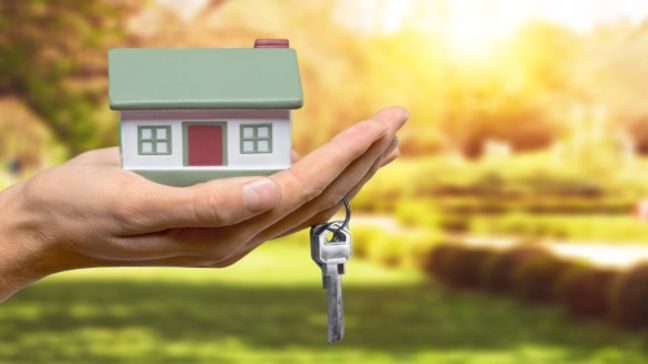Are you thinking about investing in real estate and possibly buying some rental properties, but aren’t sure if you’re ready? Here are a few questions and tips to keep in mind when wondering if purchasing a home as the type of investment right for you.
Ready to be a Landlord?
Buying a house and keeping up with it is a big decision. Buying another house and keeping up with those home repairs and chores is an even bigger decision.
When deciding to become a landlord, ask yourself a few questions first.
Are you a handyperson who can repair a pipe or nail in a board properly? Or do you have a team of people behind you who can assist you with these tasks? It all depends on how many rental properties you have, but you need to make sure you are capable of managing the property you are not living in. If not, hire a property management company where they can do all the work for you.
Money, Money, Money
Personal debt?
After purchasing a home, whether to rent out or to live in yourself, it’s always smart to make sure to pay off any previous debt before making another big purchase.
To make sure you can afford your mortgage payment it is important to reduce any medical bills, school loan debt, or previous payments that are holding you back. When you don’t have other payments weighing you down it’s easier to pay off your mortgage interest as well as giving you a cash cushion, or profit, from that monthly cash flow.
Unexpected Costs
As a landlord, you need to keep in mind the money you will need to put into your rental property. Remember to save up money just in case anything unexpected happens. For example, weather damage from either a flood, hurricane, or tornado.
Having to keep up with maintenance like broken pipes and faulty electric wires could possibly cost you more than normal. There are even operating expenses like rent and insurance as well as property taxes to always figure into the equation.
These costs can quickly add up whether you have control over it or not, so make sure you are aware of what needs to be fixed, insured, and bought.
Down Payment
The average down payment for a home tends to be around 3% of the property price. When it comes to investing in a property it can be as high as 20% for a down payment due to mortgage insurance being unavailable to rental properties. If this is unattainable look into getting a personal loan to help with the cost. Having an investment strategy can help you figure out a plan on how to purchase your property.
Stable Location
When you’re looking for that perfect property to rent out it’s best to look for a location that will help you succeed in the future.
Consider what the location has to offer to your renters. Is it in a good school district? Are there parks, grocery stores, and shops nearby? How is the crime rate and public transportation in that area? Is the job market growing?
Answering these questions while looking for your residential rental property will help you determine which is the best location to buy in.
Determine Your Return
When investing in a rental property you want to get the most out of your purchase. There are two choices of purchasing this type of property. Either by buying it or financing it. Your ROI determines how much money you put down in the beginning and how much you are needed to pay off throughout the mortgage.
Paying in cash for your property helps generate positive monthly cash flow due to rental income, taxes, depreciation, and income tax. The average amount of revenue from those could be around $9,500, making a 9.5% on a $100,000 home.
By financing your investment you are putting down 20% along with 4% on the mortgage. After subtracting operating expenses and additional interest, you could look at a 27.9% annual return on a $20,000 investment.
High-Interest Rates
On rental properties, there’s a higher interest rate compared to normal property investments because of the rental mortgage being higher. Make sure when you decide to finance your purchase on having a low mortgage payment or else your monthly cash flow would be going to your mortgage, not your pocket.
Landlord Insurance
Renting out your property can be a little risky because your renters may look good on paper, but not in reality. To protect yourself and your property it would be smart to look into landlord insurance. This will help cover property damage, lost rental income, and liability protection, in case a renter suffers an injury due to the property. Landlord insurance will make sure you are protected in any of these circumstances.
Looking into becoming a property owner can be daunting. From certain insurances to figuring out how much money you need before taking the plunge is a lot to look into. Just keep these tips and simple questions at bay while you decide if being a landlord is right for you. They can also help you decide on what the pros and cons are of investing in real estate for residential rental properties.
If you need any assistance with finding the right rent-to-own property then hope on over to Rent-To-Own Home Finder or click here. We’ll be happy to assist you on finding your next investment.
